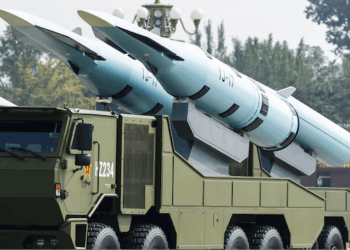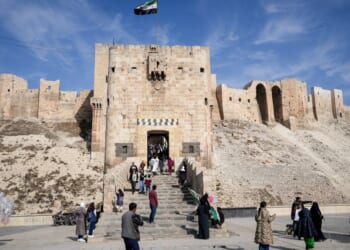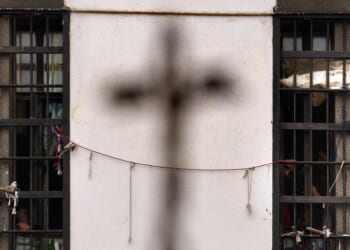By Richard Walker
Now considered a failed state, decades ago Venezuela was seven times richer than China before political mismanagement followed an oil glut in the 1980s, when total reliance on oil sealed the nation’s downward slide economically.
Click the Link Below to Listen to the Audio of this Article
But one would be wrong to think, even with the political mess that has engulfed the country for two decades, that its economic fortunes are not recoverable. It holds the world’s largest oil reserves, and it has reserves of gold, diamonds, coal, silver and rare minerals.
In fact, according to research by the editors of the “Investopedia” website in 2024, Venezuela sits at No. 10 in the world’s top 10 countries with the greatest value in resources. Its hidden wealth is estimated at $14.3 trillion, a massive sum by any standards.
No doubt, these are resources the world’s conglomerates would love to get their hands on. In 2024, it still held the No. 1 position of having the world’s largest oil reserves but, as “Investopedia” pointed out, “actual production fell as a result of U.S. sanctions.”
Nevertheless, though today it still produces oil, it now holds the 189th place on the list of global oil producers.
Maria Corina Machado, the Venezuelan economist and opposition leader recently awarded the Nobel Prize, recognizes the potential for her nation to rise out of the financial ashes. It would mean reversing the socialist policies that have dominated Venezuela, first under the late Hugo Chavez, and now under his successor, Nicolas Maduro.
She would like to end nationalization and launch a privatization initiative to broaden the appeal of the economy to outside investors who have fled Venezuela over the past two decades, fearing their assets would be seized. She believes Maduro’s socialism has crippled the country, but its hidden wealth could provide a boon for foreign investors.
China and Russia both see the potential for a strategic partnership with Venezuela. China is especially keen to exploit the oil resources. China already buys a lot of Venezuelan oil, as does Cuba.
Russia has an eye on the prize, too, from both a geopolitical standpoint and an economic one. It has used loans to encourage Venezuela to permit big Russian oil giant Rosne to drill for gas and coal in what is called the Orinoco Belt, an area in the southern tip of the country in the Orinoco River basin that holds massive quantities of crude oil, and to work closely with Venezuela’s oil companies.
None of this has changed the country’s economic trajectory, as it remains mired in corruption and outdated social policies.
Venezuela’s rise as an economic power began in the 1920s and it was based on its oil wealth. Nothing else mattered. In 1946 it was one of the nations that formed the International Monetary Fund (IMF) which no longer has any ties to the country after IMF loans were paid off decades ago.
Venezuelan leaders became tired of IMF advice to move toward an austerity strategy and broaden its economy, in which 95% of its exports were oil. It had become a petrostate, but so, too, was Saudi Arabia. The Saudis, however, did not see a collapse because it was, perhaps, better managed.
It is sometimes forgotten that Venezuela also has the second largest gold reserves in the Americas. However, one of the major issues facing recovery of gold and other minerals is illegal mining and the role of the country’s armed forces in it.
This is how the International Crisis Group, which describes itself as “an independent, non-profit, non-governmental organization committed to preventing and resolving deadly conflict,” sees the issue:
Venezuelan government forces have raided numerous illegal gold mines in the country’s south in recent years, ostensibly to protect the environment. But the truth is that they are exploiting the mines for their own enrichment, or allowing armed groups to do so in exchange for a cut of the profits.
Rising gold prices have fueled unchecked illegal mining, strengthening Venezuelan criminal enterprises, Colombian guerrilla groups, and corrupt elites.
It is estimated that, of the tons of gold mined every year in Venezuela, about 25% reaches the central bank, 9% is picked up by the national treasury, 30% shared between private corporations and Venezuela’s state-run mining corporation, and 30% ends up in the pockets of organized crime bosses.
Given that, in 2022, the United States estimated that 75 tons of gold were mined in Venezuela, the loss to the country was massive and continues to be so.
New Nobel Prize winner Maria Machado believes Venezuela can attract international investors to return if Maduro is ousted, but dealing with all the issues surrounding mining and rebuilding Venezuela as a major oil hub with China and Russia having a say in the process may not prove easy.
Still, the possibility for many big corporations to get their hands on some of the massive wealth in the seas and under the land in Venezuela may be impossible to resist.
Regime change, however, as shown in the Middle East, does not inevitably lead to a new financial dawn, even when there are massive mineral resources to be explored and exploited. Just ask the Iraqis.
(function() {
var zergnet = document.createElement(‘script’);
zergnet.type=”text/javascript”; zergnet.async = true;
zergnet.src = (document.location.protocol == “https:” ? “https:” : “http:”) + ‘//www.zergnet.com/zerg.js?id=88892’;
var znscr = document.getElementsByTagName(‘script’)[0];
znscr.parentNode.insertBefore(zergnet, znscr);
})();

























